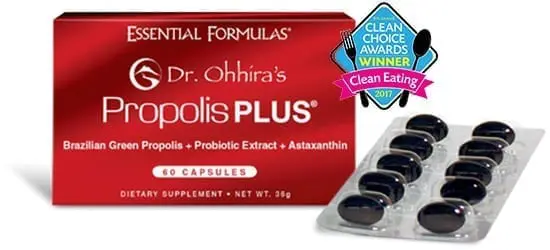Probiotic support may be the key to staying healthy this school year
The air is crisp, the leaves are just beginning to change, and young people are busy with studies, sports, and friends. Meanwhile, parents are bracing themselves for yet another autumn tradition: back-to-school sniffles, not to mention COVID. Perhaps the best way to deal with the colds and virus’s is to avoid them entirely.
It is not just germs that cause kids (and grown-ups!) to get sick. A significant factor is the strength of their immune response. That, believe it or not, starts in the digestive tract, where over 70 percent of immune system cells reside. Probiotics, the beneficial bacteria that live in the gut, help support the function of these immune cells.
“While there has been quite a bit of attention regarding probiotics’ role in promoting digestive health, their ability to bolster immune response is lesser-known,” said Dallas-based integrative health nutrition author and radio host Martie Whittekin, CCN.
The friendly bacteria help support the function of immune system cells by, among other things, crowding out unfriendly guests like harmful bacteria. Probiotics also enhance digestion, which means the body absorbs all the nutrients it needs from food and supplements. That alone equips the body to stay healthy and more efficiently fight off any nasty bugs that come along.
“Unfortunately, due to overuse of antibiotics, stress, and other modern environmental and dietary issues, most people of all ages have a compromised probiotic population,” said Natalie Engelbart, DC, a chiropractor practicing in Boulder, Colorado. To maintain good health, the ratio of good to harmful bacteria needs to stay at 85 to 15. This ratio is almost impossible to maintain without supplementing with a high-quality probiotic. Dr. Engelbart encourages her patients to look for a supplement that encapsulates both the probiotic and its nutritious culture medium, which contains health-promoting compounds called postbiotics.
A probiotic alone will not necessarily be successful. The friendly bacteria need what is called prebiotic support,” explained Whittekin, who noted that a specific Japanese probiotic, available in the U.S. as Dr. Ohhira’s Probiotics, fits the bill. The probiotic formula is encapsulated with its culture medium. The culture medium provides nutritious vitamins, minerals, amino acids, enzymes, and postbiotics, pH-balancing organic acids. “This prebiotic support ensures that the probiotics take root and thrive in the digestive tract,” stressed Whittekin.
With the prebiotic, probiotic, and postbiotic supplementation in place, the body’s immune system can see some real benefit, translating into fewer sick days. That’s excellent news for the whole family.
When relying on probiotics to help support immune response, it is vital to pick the right supplement. Some products claim to contain “billions and billions” of bacteria. That’s not always a good thing, though. Providing too much of a single bacteria strain can trigger an immune response; the body treats the supplemented bacteria as a threat. Consumers should also look out for probiotic products that may have undergone manufacturing processes or shipping conditions that render them useless. Avoid some of these pitfalls by finding a brand with studies conducted on its finished product.
Yes, it’s not just germs that make people sick. Poor digestive tract balance can lead to a compromised immune response, making the body especially vulnerable to daily germ exposure. A high-quality probiotic supplement can be a big step toward sound health for the whole family throughout the year.






